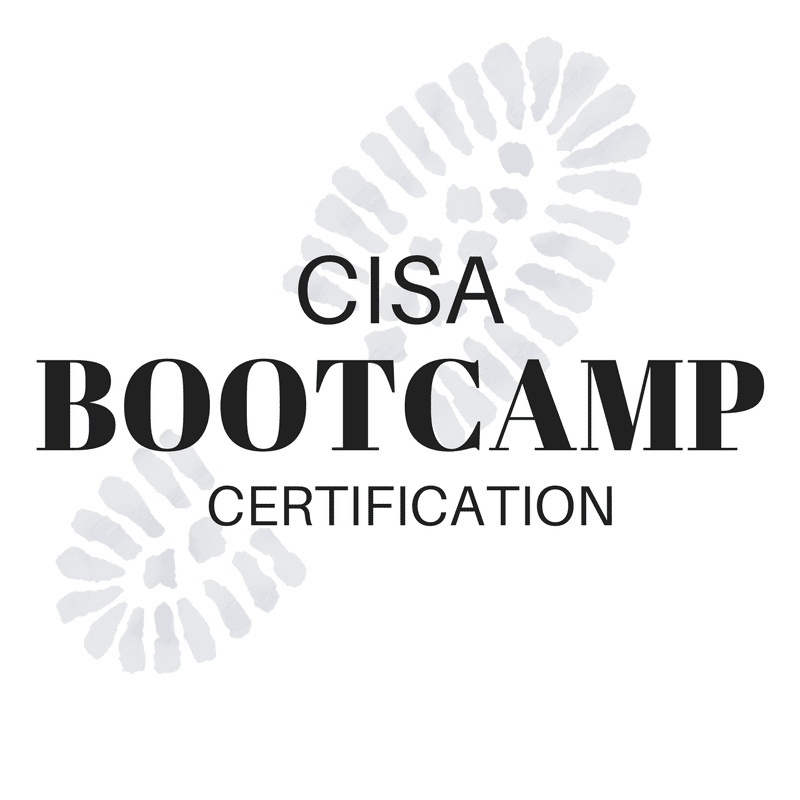
In a world where data breaches and cyber threats are increasingly common, the need for skilled professionals to ensure the security and integrity of information systems is critical. The Certified Information Systems Auditor (CISA) certification, awarded by ISACA, stands out as a leading credential in the field of information systems auditing, governance, and security. It’s globally recognized and highly regarded for its rigor and the comprehensive skill set it represents.
Achieving CISA certification not only enhances your career prospects but also positions you as an expert in protecting and auditing information systems. With its strict requirements and challenging exams, CISA is a valuable asset for anyone looking to advance in the IT security and auditing fields.
Key Takeaways
- Ongoing Professional Development: Continuous education and networking are key to maintaining your certification and staying current in the field.
- Globally Recognized: CISA is respected worldwide, making it a valuable credential for international career opportunities.
- Career Boost: It opens doors to senior roles in IT audit and security.
- Higher Earning Potential: CISA-certified professionals often enjoy higher salaries.
Why CISA Certification Matters
In an era of accelerating digital transformation and increasingly sophisticated cyber threats, the need for skilled professionals to oversee and secure information systems is more critical than ever. The Certified Information Systems Auditor (CISA) certification, granted by ISACA, has emerged as a vital credential for those involved in auditing, controlling, and monitoring information systems.
With rising regulatory pressures and the growing complexity of IT environments, organizations are prioritizing candidates who can ensure compliance and mitigate risks. CISA certification stands out because it equips professionals with a deep understanding of information systems auditing and governance, making them invaluable assets to employers.
Why CISA Certification Is Crucial Today:
- Enhanced Cybersecurity Needs: As organizations face increasing cybersecurity threats, CISA professionals are crucial in implementing and managing robust security measures.
- Regulatory Compliance: With stringent regulations like GDPR and CCPA, CISA-certified auditors help ensure that organizations comply with legal requirements.
- In-Demand Expertise: The rise in IT audits and risk management positions CISA as a highly sought-after credential in the job market.
- Career Advancement: Achieving CISA certification can lead to career growth opportunities, higher salaries, and recognition as an expert in the field.
By obtaining the CISA certification, you demonstrate your capability to address these modern challenges and enhance your value to potential employers in a rapidly evolving digital landscape.
CISA vs. CISSP vs. CISM
Understanding the differences between CISA, CISSP, and CISM can help you choose the right certification based on your career goals:
- CISA focuses on auditing, control, and monitoring of information systems, making it ideal for IT audit and compliance roles.
- The CISSP covers a broad range of information security practices and is suited for those who want to specialize in security management and architecture.
- CISM emphasizes managing and governing information security programs, targeting those in or aspiring to management roles.
Each certification offers distinct benefits and caters to different aspects of information security and auditing.
Key Benefits of Earning the CISA Certification
- Enhanced Professional Credibility: The certification demonstrates a strong commitment to the profession and a comprehensive understanding of the principles and practices of information systems auditing.
- Global Recognition: The CISA certification is recognized in over 180 countries, making it a valuable credential for professionals working in multinational companies or those looking to work abroad.
- Increased Earning Potential: Certified professionals often command higher salaries. In 2015, CISA was ranked among the top five highest-paying IT certifications.
- Career Advancement: CISA holders are highly sought after for roles such as IT Audit Manager, Information Security Auditor, and Chief Information Officer (CIO).
CISA Certification Requirements
Achieving the CISA certification requires meeting specific prerequisites that ensure candidates have the necessary knowledge and experience to perform effectively in their roles.
1. Work Experience
To qualify for the CISA certification, candidates must have at least five years of professional work experience in information systems auditing, control, assurance, or security. This experience must be gained within the ten years preceding the application date or within five years of passing the CISA exam.
Experience Substitutions
While five years of work experience is the standard requirement, ISACA allows for some substitutions that can reduce this requirement by up to three years:
- Two-Year Waiver: Achieving ACCA (Association of Chartered Certified Accountants) member status or holding a CIMA (Chartered Institute of Management Accountants) certification.
- Two-Year Waiver: Completing 60 to 120 university credit hours in a relevant field (such as information systems or computer science).
- One-Year Waiver: Earning a master’s degree in information technology, information security, or a related field.
It’s essential to note that the experience substitution options cannot be combined to exceed three years. Therefore, the minimum work experience required after applying the maximum waivers is two years.
2. CISA Exam
Passing the CISA exam is a critical step in the certification process. The exam is rigorous and tests candidates on five key domains of information systems auditing. The following sections provide more details about the exam structure.
3. Adherence to the Code of Ethics
Candidates must agree to and adhere to the ISACA Code of Professional Ethics, which sets the standard for professional conduct in the field. This code requires CISA holders to perform their duties with honesty, diligence, and responsibility.
4. Continuing Professional Education (CPE)
After obtaining the CISA certification, professionals are required to maintain their certification by earning 20 Continuing Professional Education (CPE) hours annually and a total of 120 hours over a three-year period. This ensures that CISA holders stay current with emerging trends and continue to grow their expertise in the field.
CISA Certification Cost
The cost of obtaining a CISA certification can vary based on several factors, including ISACA membership status, registration timing, and additional fees for changes or cancellations.
1. Exam Fees
- Early Registration: $625 for non-members and $440 for ISACA members (online registration).
- Final Registration: $675 for non-members and $490 for ISACA members.
- Processing Fees: An additional $75 processing fee applies to mailed or faxed registrations.
2. Exam Rescheduling and Cancellation Fees
- Exam Change Fee: $50 (changes must be made before receiving the exam ticket).
- Cancellation Fee: $100 (cancellations must be processed one month before the exam).
- Deferral Fee: $50 if processed before one month; $100 if processed within one month of the exam.
3. Certification Application Fee
After passing the exam, candidates must pay a $50 processing fee when applying for the CISA certification.
4. Continuing Education Costs
To maintain the certification, professionals must also budget for costs associated with earning CPE hours, which may include attending conferences, taking courses, or purchasing study materials.
Preparing for the CISA Exam
The CISA exam is known for its difficulty, with a pass rate of around 50% and even lower rates for first-time test-takers. As such, thorough preparation is essential for success.
1. CISA Review Manual
The CISA Review Manual is one of the most recommended self-study tools for exam preparation. It covers all exam domains with detailed explanations, practice questions, and exam-taking strategies. This manual is updated regularly to reflect the latest exam content and is an invaluable resource for candidates.
2. ISACA Study Materials
ISACA offers a variety of official study materials, including:
- CISA Practice Questions Database: A collection of questions that mirror the format and difficulty of the actual exam.
- CISA Review Manual: An extensive guide that delves into the key concepts covered in the exam.
- Supplemental Study Guides: Additional resources, such as CD-ROMs and language-specific materials, that can aid in preparation.
3. CISA Prep Courses
For candidates who prefer structured learning or need additional guidance, several CISA prep courses are available:
- ISACA Classroom Training: ISACA offers in-person and online classroom training sessions that provide an immersive learning experience.
- Online CISA Courses: Numerous online platforms offer self-paced courses, live webinars, and tutor-led sessions. These courses often include practice exams, quizzes, and progress-tracking features.
4. Practice Exams
Taking practice exams is crucial for understanding the exam format and building confidence. ISACA provides a self-assessment exam, which can help candidates gauge their readiness. Additionally, many prep courses include full-length practice exams and domain-specific quizzes.
A Closer Look at the CISA Exam Structure
The CISA exam is divided into five key domains, each focusing on a different aspect of information systems auditing. The exam consists of 200 multiple-choice questions, and candidates are given four hours to complete it. A passing score is 450 out of 800.
1. The Process of Auditing Information Systems (21%)
This domain covers the audit process, including planning, execution, reporting, and follow-up. Candidates must understand how to assess control environments, evaluate IT governance, and provide assurance that an organization’s information systems meet compliance requirements.
2. Governance and Management of IT (17%)
This section focuses on IT governance, risk management, and resource management. Candidates must demonstrate knowledge of IT strategy, policies, standards, and best practices for aligning IT with business objectives.
3. Information Systems Acquisition, Development, and Implementation (12%)
This domain assesses candidates’ understanding of the processes involved in acquiring, developing, and implementing information systems. Topics include project management, system development methodologies, and testing strategies.
4. Information Systems Operations, Maintenance, and Support (23%)
This section covers the ongoing operations and support of information systems, including performance monitoring, problem management, and disaster recovery. Candidates must know how to ensure systems are operating efficiently and securely.
5. Protection of Information Assets (27%)
The largest domain, this section focuses on information security and controls. Candidates must demonstrate knowledge of security policies, data protection measures, and methods for preventing and responding to security incidents.
How to Excel at the CISA Exam
Given the CISA exam’s difficulty, success requires strategic preparation and a thorough understanding of the exam content.
1. Create a Study Plan
Allocate at least 3-4 months of dedicated study time before the exam. Break down your study schedule into manageable chunks, focusing on one domain at a time.
2. Focus on Core Concepts
Ensure that you have a solid grasp of the fundamental concepts in each domain. Use the CISA Review Manual to guide your studies, and make note of key points for quick review.
3. Practice with Realistic Questions
Regularly test your knowledge with practice questions that simulate the actual exam. Review both correct and incorrect answers to understand the reasoning behind each choice.
4. Use Multiple Study Resources
While the CISA Review Manual is essential, supplement your studies with additional resources such as online courses, study groups, and webinars. This will help reinforce your understanding and provide different perspectives on complex topics.
5. Take Care of Logistics
Ensure that you are familiar with the exam day logistics, including the location, time, and required identification. Arrive at least 30 minutes early to allow time for check-in and pre-exam instructions.
Best CISA Study Materials
| CISA Courses |  |  |  |  |  |
|---|---|---|---|---|---|
| RANKINGS |
#1 |
#2 |
#3 |
#4 |
#5 |
| OVERALL RATING | [rating=5] | [rating=5] | [rating=5] | [rating=4] | [rating=3] |
| WEBSITE | Surgent CISA Training | CISA SuperReview | Dooey CISA Training | Kaplan IT Training (CyberVista) | CISA ExamPractice |
| PRICE | $309 | ||||
| VIDEO LESSONS | N/A | 650 Narrated Screens | 72 hours Learning | Available | 15+ Hours |
| PRACTICE TESTS | Unlimited | 66 | 1 Full-Length Practice Test + 5 Simulation Exams | Available | 12 Domain Review Quizzes |
| PRACTICE QUESTIONS | 1,650+ | 900 | 5 Domain Test Papers | Available | 1000+ |
| CPEs | None | 40 | 40 | None | 40 |
| FORMAT | eLearning | Online Self-Learning, or Live Online | Self Paced, or Live Online | eLearning | Online Self-Paced |
| GUARANTEE | Pass Guarantee | 6 Month Pass Guarantee | 2-Day Money Back Guarantee | Pass Guarantee | Pass Guarantee |
| PROGRESS TRACKING |  |  |  |  |  |
| MOBILE FRIENDLY |  |  |  |  |  |
| ONLINE ACCESS | 12 Months | 180 Days | 12 Months | 12 Months | 180 Days |
| ACCESS COURSE | GET STARTED NOW | GET STARTED NOW | GET STARTED NOW | GET STARTED NOW | GET STARTED NOW |
CISA Certification Maintenance and Career Advancement
After earning your CISA certification, maintaining it requires continuous learning and professional development.
Continuing Professional Education (CPE)
As part of ISACA’s CPE program, CISA holders must earn 20 CPE hours annually and 120 CPE hours over three years. Activities that qualify for CPE credits include:
- Attending ISACA conferences or training events
- Taking advanced courses related to information systems auditing
- Publishing articles or white papers on relevant topics
- Serving as a volunteer or board member in professional organizations
Professional Networking and Career Growth
Joining ISACA’s local chapters, participating in industry forums, and attending conferences can help you build a strong professional network. Networking with other CISA-certified professionals can lead to career opportunities, mentorship, and collaborative projects.
Exploring Advanced Certifications
After achieving the CISA, consider pursuing additional certifications to further specialize your skills:
- Certified Information Security Manager (CISM)
- Certified in Risk and Information Systems Control (CRISC)
- Certified in the Governance of Enterprise IT (CGEIT)
These certifications can help you move into more senior roles, such as Chief Information Security Officer (CISO) or IT Audit Director.
The Future of Information Systems Auditing
The landscape of information systems auditing is constantly evolving, with emerging technologies like artificial intelligence, blockchain, and cloud computing reshaping the field. Staying ahead of these trends is essential for long-term success. As a CISA-certified professional, you’ll be at the forefront of these changes, helping organizations navigate new challenges and secure their information assets.
Final Thoughts: Achieving CISA Certification
The CISA certification is a prestigious credential that can profoundly impact your career in information systems auditing and security. It validates your expertise, enhances job prospects, boosts earning potential, and establishes professional credibility. By investing time and effort into obtaining the CISA, you position yourself for advanced roles in IT audit and security, with continuous opportunities for growth in this ever-evolving field. Achieving CISA requires dedication and thorough preparation, but by following the steps outlined in this guide, you’ll be well-prepared to pass the exam and advance your career in this dynamic and rewarding industry.